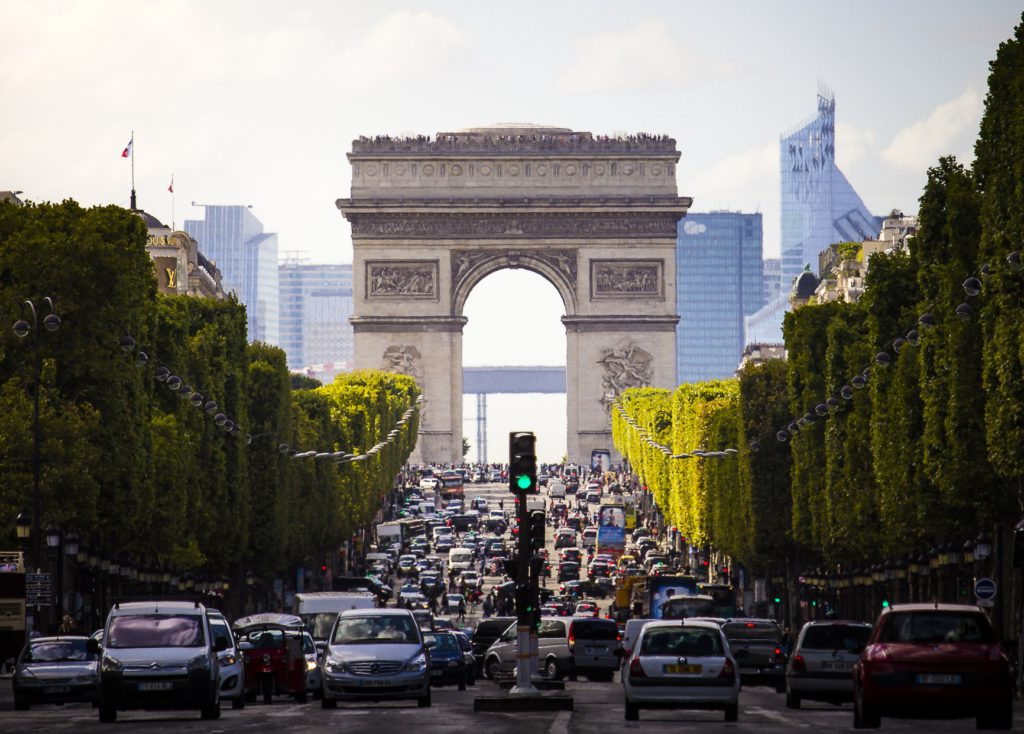France to ban petrol and diesel vehicle sales by 2040 as strives to become ‘No. 1 green economy’
07 July 2017

07 July 2017
Following Autovista Group’s report in May that President Macron is to ban the sale of internal combustion engine (ICE) vehicles in France in 2040, new Energy Minister and veteran climate activist Nicolas Hulot announced his full Climate Plan last Thursday.
One of the most ambitious ever conceived, it spans 23 major policy proposals across six fields, attacking climate impacts from all angles in order for the country to become entirely carbon neutral by 2050.
Hublot proclaimed: ′France wants to become the No. 1 green economy.’
The Climate Plan, which will eradicate coal plants by 2022 and encourage home energy production and will also ban oil and gas exploration on French territory (which is rather limited), was presented as the G20 group of nations met in Hamburg. The members hold more than 80% of the world’s wealth and are responsible for the vast majority of its pollution.
Hublot added that the 2040 ban target, which boosts electric vehicles (EVs) as a result, was ′a tough one,’ and that the government would have to make investments to meet it. In May, Macron announced plans to introduce a €1000 bonus for the purchase of new or used ′greener’ vehicles, expanding the current scheme beyond just hybrid and electric vehicles, as well as keeping the existing bonus-malus (reward-penalty) scheme for cleaner and higher fuel consumption vehicles respectively. €15 billion will also be spent on ecology and power generation, including boosting renewables to 32% of the energy mix, and reducing nuclear to 50%, despite its carbon neutral credentials. The ban would also involve significant investment by OEMs, including national carmakers PSA (Peugeot Citroën) and Renault, which effectively also involves the state since it has stakes in both. Renault’s Zoe – the sister car to Alliance partner Nissan’s bestselling Leaf – is one of the most popular EVs in Europe.
Another key policy proposal involves offering tax incentives to replace diesel vehicles more than 20 years old, as well as petrol vehicles built before 2001.
A PSA spokeswoman told Bloomberg that ′switching to another energy source isn’t painless,’ but that PSA should benefit from the tax incentives to scrap the oldest vehicles.
In outlining his revolutionary Climate Plan, Hublot pointed to Volvo’s announcement last week that all its models would have electrified powertrains from 2019. Forecasts from Bloomberg New Energy Finance (BNEF) add support to France’s 2040 ambitions. It predicts that electric vehicles will outsell fossil fuel-powered vehicles within two decades as battery prices are set to plunge, and its analyst Salim Morsy says that electric cars will be dominating the market by the time of France’s 2040 deadline. By then, BNEF models show electric vehicles will represent 54% of all new car sales worldwide. In only 10 years by 2025, electric vehicles will be as cheap as petrol models.
PSA’s spokeswoman added that while PSA aims to offer an electric option for 80% of its vehicle line-up by 2023, it will not be going exclusively electric like Volvo any time soon. Smaller premium carmakers such as Volvo with smaller R&D budgets and higher margins are expected to make the switch first.
The 2040 ICE ban means the French auto market is set for a gargantuan shift over the next 20 years. All-electric vehicles currently only account for 1.2% of the market, and hybrids 3.5% – and it is not even clear if the 2040 target will allow the sale of hybrids. It is also not clear what will happen to fossil fuel vehicles still on the road in 2040.
France also aims to stand steadfastly alongside German Chancellor Angela Merkel and Chinese President Xi Jinping in being deeply critical of US President Trump’s decision to scrap its participation in the Paris climate change accord. Trump’s decision was explicitly named in Hublot’s announcement of France’s new vehicle plan. Trump’s plans are also expected to put the US on the back foot in new climate-friendly industries, as his policies will weaken green markets in the US. This presents major opportunities for businesses in Europe and China to gain a deep foothold in new markets.
Macron castigated Trump’s US environmental policies, calling on him to ′make our planet great again.’